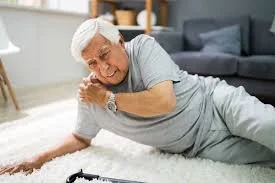Fall Prevention Tips for Older Adults: Stay Safe and Independent
Falls are one of the leading causes of injury among older adults, but the good news is that many falls can be prevented. Taking proactive steps can help seniors stay safe, confident, and independent in their daily lives. Here are some practical fall prevention tips for older adults and their families.
1. Keep Moving with Regular Exercise
Staying active helps maintain strength, balance, and flexibility. Gentle activities such as walking, yoga, tai chi, or water aerobics can improve stability and reduce the risk of falls. Talk to a healthcare provider before starting any new exercise routine.
2. Make Your Home Safer
Simple home modifications can greatly reduce hazards:
Remove clutter, cords, and loose rugs.
Install grab bars in bathrooms and handrails on both sides of stairways.
Ensure rooms and hallways are well lit, using night lights for easy navigation at night.
Keep frequently used items within easy reach to avoid climbing or stretching.
3. Wear Proper Footwear
Shoes with non-slip soles and good support can make a big difference. Avoid slippers, flip-flops, or shoes with slick bottoms that can increase the chance of slipping.
4. Review Medications Regularly
Some medications can cause dizziness or drowsiness. Seniors should review prescriptions and over-the-counter medications with their doctor or pharmacist to understand side effects and interactions that may increase fall risk.
5. Schedule Vision and Hearing Checkups
Clear vision and good hearing are essential for balance and safety. Regular eye exams can detect cataracts, glaucoma, or vision changes, while hearing checks can ensure older adults are aware of their surroundings.
6. Stay Hydrated and Nourished
Dehydration and poor nutrition can lead to weakness, dizziness, or fainting. Drinking enough water and eating a balanced diet rich in vitamins and minerals helps maintain strength and stability.
7. Use Assistive Devices if Needed
If recommended by a healthcare professional, canes, walkers, or other mobility aids can provide extra support and confidence when walking.
Final Thoughts
Falls don’t have to be an inevitable part of aging. By making small lifestyle adjustments, older adults can reduce risks and maintain their independence. Families and caregivers play a key role by supporting loved ones in creating a safe and healthy environment.

